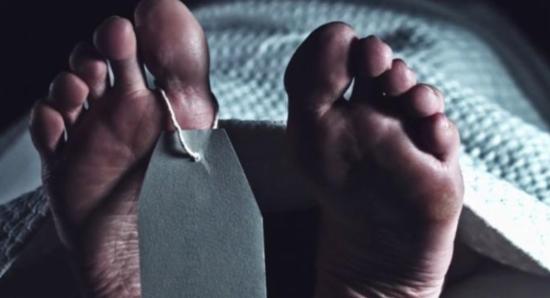.webp)

Child Protection: 21 Recommendations from President's Committee
COLOMBO (News 1st); The Committee appointed by the President to study the situation and issues in the sphere of Child Protection, taking into consideration the socio economic and technology changes that have taken place in the last three decades has released its report with 21 recommendations.
This crucial committee was established on April 19, 2023, under the instructions of President Wickremesinghe. Its primary mission was to study and provide recommendations for the protection, care and overall welfare of children who have been subjected to various forms of violence within Sri Lanka.
The report, which was completed and submitted to the President yesterday, addresses a wide range of issues concerning child protection, including issues related to institutionalized environments, lack of parental care, family separation, digital media exposure, child labour and more. The committee also evaluated the adequacy of existing institutional, administrative and legal safeguards for child protection, aiming to meet the demands of modern society.
According to the Department of Government Information, the committee comprised of Academics and Professionals from the Medical and Legal fields with experience in Child Protection as Child protection Specialist from International Agencies.
It added that the Committee was mandated to study and make recommendations in the Institutional, Administrative and Legal Frameworks to improve the system to protect children who have been abandoned, neglected, orphaned or been victims of physical or sexual abuse.
Following discussions with Key stakeholders the committee has made recommendations to make the system more effective, to reduce the factors that increase children’s vulnerabilities and interventions that would be based on universally accepted principle of the Best Interest of the Child.
The Recommendations include:
1. To enact Legislation to prohibit corporal punishment. This would align Sri Lanka with the Convention on the Rights of the Child (CRC).
2. To introduce a scheme of reintegration for the children in institutions who reach 18 years of age. Presently there is no scheme available and children leaving Child Care Institutions end up being employed by drug dealers or spas. This scheme would enable children to receive training in IT, Language’s, Financial skills etc. empowering them to find employment in high paying jobs.
3. To improve the conditions in Child Care Institutions by providing necessary facilities and equipment as well as including these children in food subsidiary welfare schemes.
4. 70% of children in Institutions are admitted due to poverty of the family. To implement livelihood development, recovery and empowerment programmes to enable parents to keep the family unit intact.
5. The Committed has identified the factors that adversely affect the mental and physical wellbeing of children in modern society and has stressed the need to take action in these areas as well.
These factors include substance abuse where children are resorting to the use of alcohol, tobacco and other drugs. The recommendations include banning sale of these substances within 100 metre distance from schools and the ban on single stick cigarette with parallel implementation of awareness programmes on the problems associated with substance abuse.
6. The Committee has observed the damage being done to children by the use of digital media which include children becoming victims of paedophiles, use of children in porn sites, cyber bullying and extortion, addiction of children to gaming for money etc.
The harmful effects of social media are universally recognized, and the Committee has recommended the implementation of the Online Safety Bill with appropriate Safeguards being included for the protection of children.
7. To take steps to prevent abuse and exploitation of children taking place across Institutions of education as well as religious Institutes.
8. To establish child friendly spaces in all 602 Police Stations island-wide with strengthening the Women and Children’s Desks by increasing Cadre and necessary resources.
9. To take steps to prevent injustice being done to child victims in the Judicial process.
A trial that would in fact last about 15 hours is dragged over a period of 15 years, during which period children are often entered into Child Care Institutions and deprived of a normal childhood.
This would entail a victim centric approach and introduction of child friendly procedures that include evidence to be given through video recording, examination during trial to be conducted through trained officers and the conclusion of the trial in the stipulated time period with payment of compensation to children who suffer due to State Agencies Delays.
10. Special Courts to be established to fast track and take on cases to clear backlog of cases.
11. The National Child Protection Authority to be strengthened and moved under the President of Sri Lanka to operate according to the original conceptual framework.
NCPA should have the mandate and authority to investigate institutions and actions in respect of child protection.
12. To make administrative changes that ensure that Reporting Mechanisms are strengthened, and that Data Collection is improved to enable all Stakeholders to share
data to improve services.
13. Multi Stakeholder collaboration to share data collected and trends/analysis towards early detection of hotspots and deploy child protection initiatives.
Labour Department census to be shared with NCPA and Probation in order to identify children at risk due to mother migration in order to implement required protection and monitoring mechanisms at community level.
14. To implement Care Plans to monitor the safety and wellbeing of young children while parents have left them to seek employment outside.
15. All Child Development Centres to be assessed for Quality standards for childcare and child wellbeing, with regular monitoring and resources support provided to maintain quality services and care of children.
Effective processes to be in place for early reunification and reintegration through strong placement committees
16. To establish 9 Lama Piyasa Units in the 9 Provinces.
17. Education reforms to include "Life skills, relationship education and substance abuse awareness" as a mandatory subject in the curriculum with dedicated teachers professionally trained and additional support provided by a cadre of trained / qualified counsellors.
18. To Commence teacher training programmes for all new recruitments that take place and those who have not followed teacher training courses to improve quality of
education in Schools and guidance of children. Introduce teachers license to be renewed annually through a multidisciplinary evaluation process.
19. Awareness and techniques on Good Parenting Practices to be carried out through community interventions and partnerships with local civil society organizations to address violence, harmful parenting practices and trauma.
20. The recognition of psychologists and counsellors in order to address deep-rooted trauma of communities/parents that are passed on to children through a culture of violence. Counselling and Psychologists policies to be converted into regulation based on a special Gazette notification.
21. Community level support groups to be set up for parents to seek advice and guidance when needed while economic opportunities are brought in by different
stakeholders/actors in the country.
The Department of Government Information added that the importance of keeping the Best Interest of the child in all interventions and the need to amend Legislation to keep up with be Best Practices that have been developed after research has been stressed by the Committee.
The necessity to train teachers, police personnel, counsellors and all other Stakeholders who deal with children has been advocated with the importance of the need to ensure that all sectors of society including civil society and the private sector participates in these interventions is emphasised.
Other Articles
Featured News





.png )





-755421-755635_550x300.jpg)



-755617_550x300.jpg)
-755574_550x300.jpg)
.gif)








.webp)






